The ‘Fast & Furious’ actor on why community, teaching, and growth will change the future.
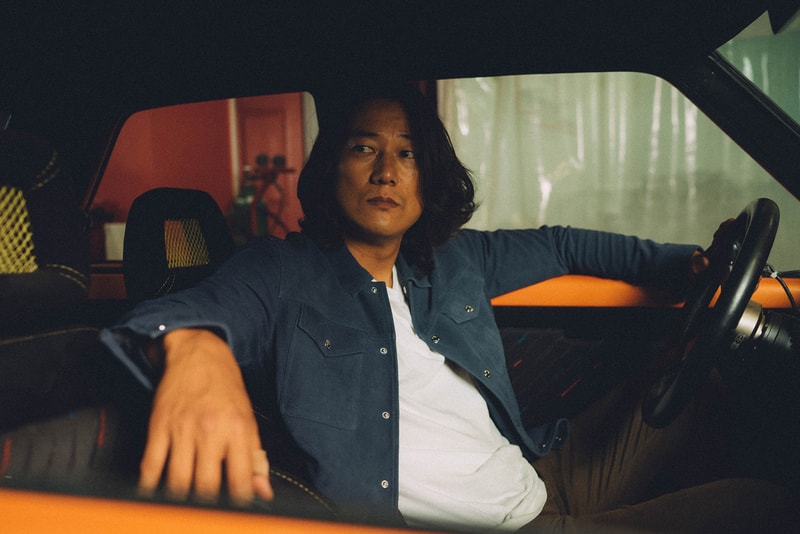
The Fast & Furious franchise may now be, as actor Sung Kang puts it, “a combination pizza for Fast fans,” but that’s because it’s not meant to represent real life. Instead, it throws action, racing, and drama into one category — and in doing so, the films have done more than just generate billions of dollars of revenue. They’ve created characters that are more like role models for car obsessives, who see themselves (in one way or another) in the cast members.
But Kang, who is best known for playing Han Lue in the franchise, has a growing position as a role model beyond the film, too. Through Sung’s Garage — a workshop that not only builds cars, but acts as the springboard for Kang’s podcast in which he discusses his life and those who have helped him — Kang teaches kids everything there is to know about cars. But it extends beyond restoration, as there’s an underlying message of community, passion, and determination that is taught through Kang’s craft.
HYPEBEAST spoke with Kang to understand more about his work at Sung’s Garage, how cars played an integral role in his self-discovery, and how the car community further helped build him into the man he is today.
1 of 4
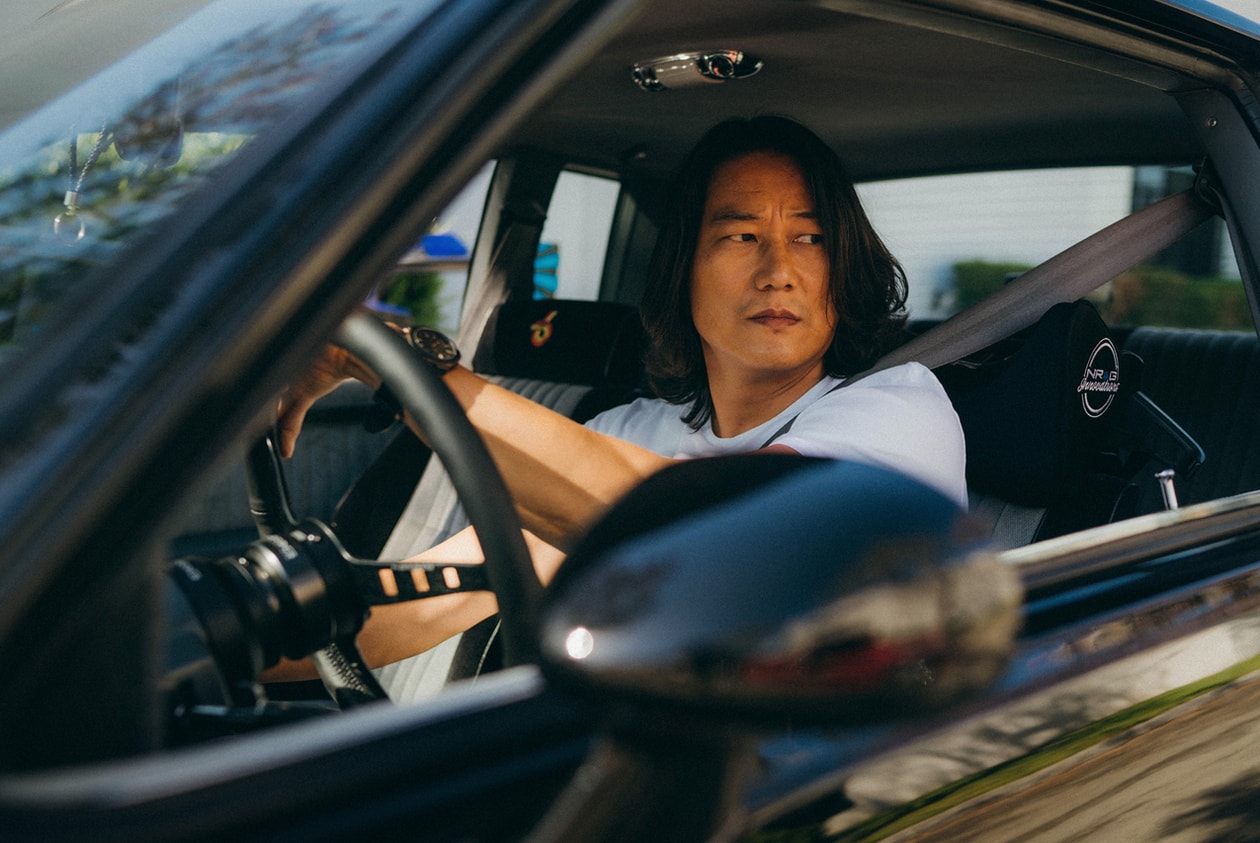
Aaron Miller/Hypebeast
2 of 4
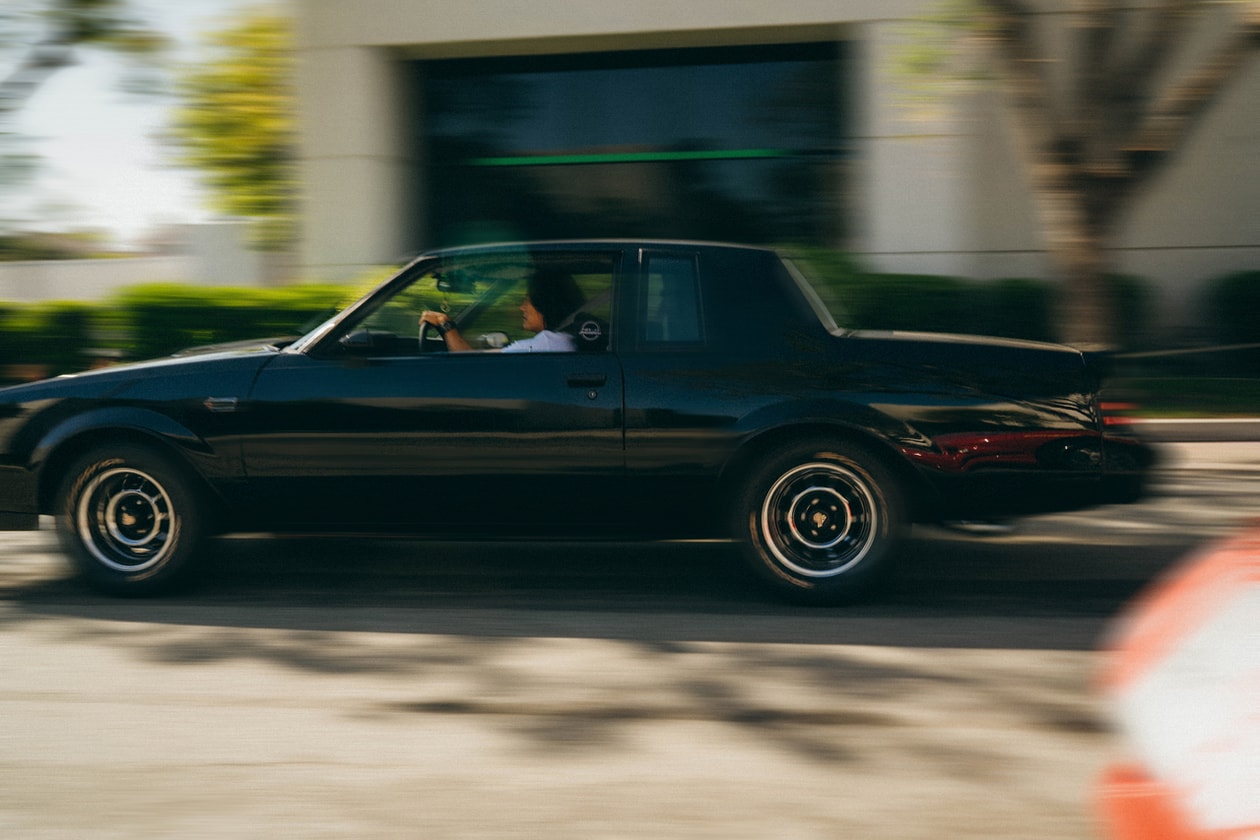
Aaron Miller/Hypebeast
3 of 4
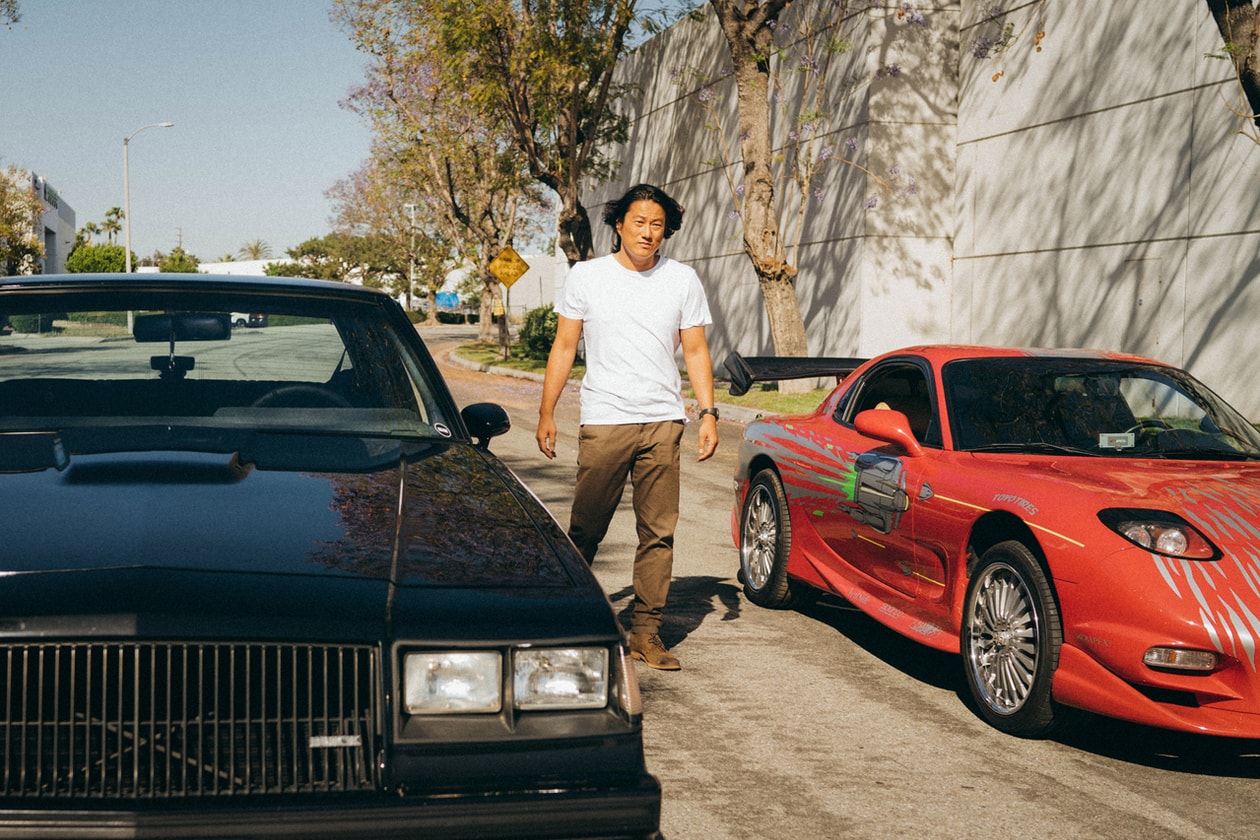
Aaron Miller/Hypebeast
4 of 4
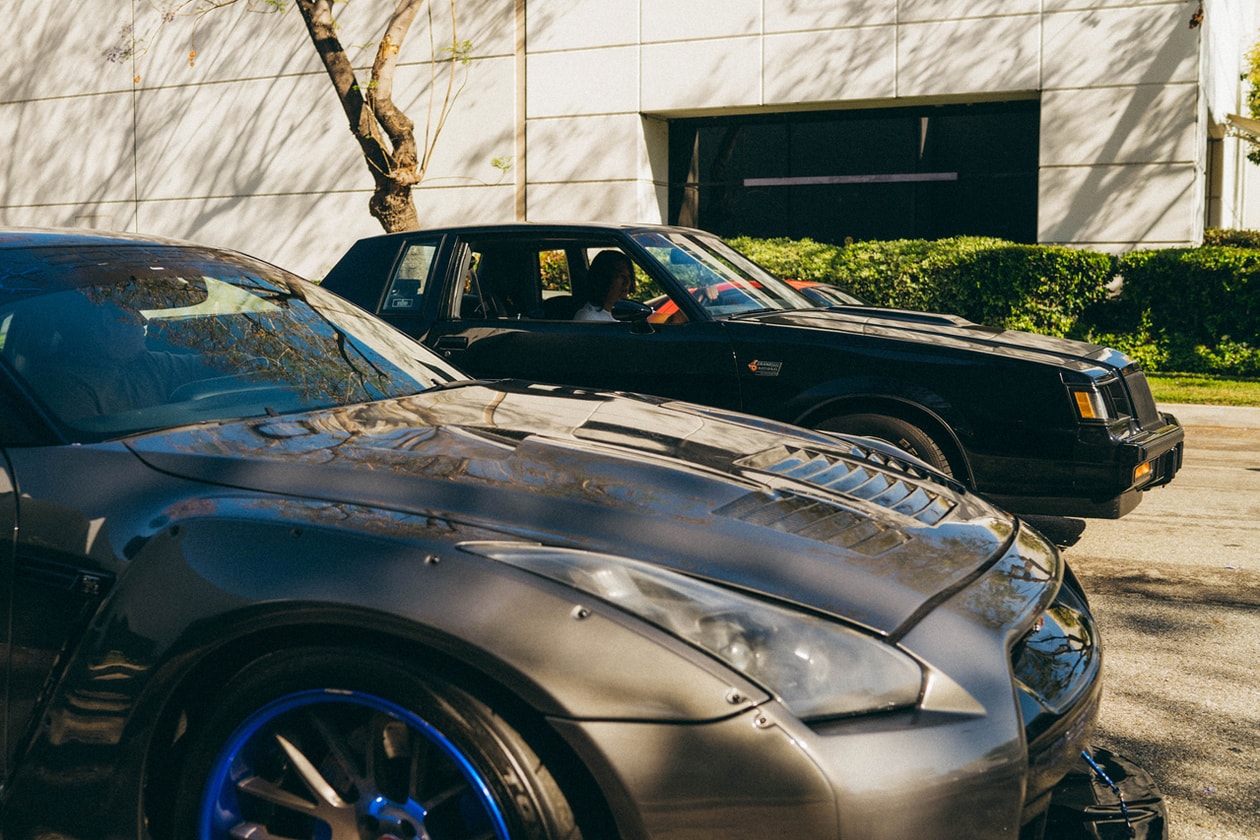
Aaron Miller/Hypebeast
HYPEBEAST: When did you know you liked cars?
Sung Kang: When I was 10 or 11 years old, I was walking around the neighborhood and I saw this older gentleman working on a ‘64 Impala. He eventually invited me into the garage and explained to me the restoration process for this SS Impala convertible. He was sorting out all the badging for it and he explained to me the different models the Impala came in — why the SS was the crème de la crème of the Impala family. His enthusiasm and attention to detail, his meditation in this garage, was infectious.
I’d sit there and ask him basic, elementary questions: where do you get that, why do you do that, why is that red? It was more about enthusiasm. He was at the tail-end of his restoration, so I got to be a part of his enthusiasm.
He was a Korean war vet, and I’m a little Korean-American kid walking around, and generationally we’re so different but he passed off this enthusiasm.
As a kid, am I into Impalas? Not necessarily, I’m into Transformers and Night Rider, Dukes of Hazard, but it gave me an understanding of why people love their cars. As I got older, I was able to use that as connective tissue as I got into the Fast & Furious movies, it gave me access to the car community that normally, you know, I think I wouldn’t have or would be harder for me to have.
As you get older there’s a period of being too young to drive and then getting your first car. How important were cars in your coming-of-age era?
So important! I grew up in America; as a 16-year-old that is the benchmark in a young kid’s life, I got my driving license. Because I was in America, pop culture and the media really perpetuates car culture: cars are characters in TV shows and movies, and our lives, so we’re always searching for that car to be part of our identity.
1 of 4
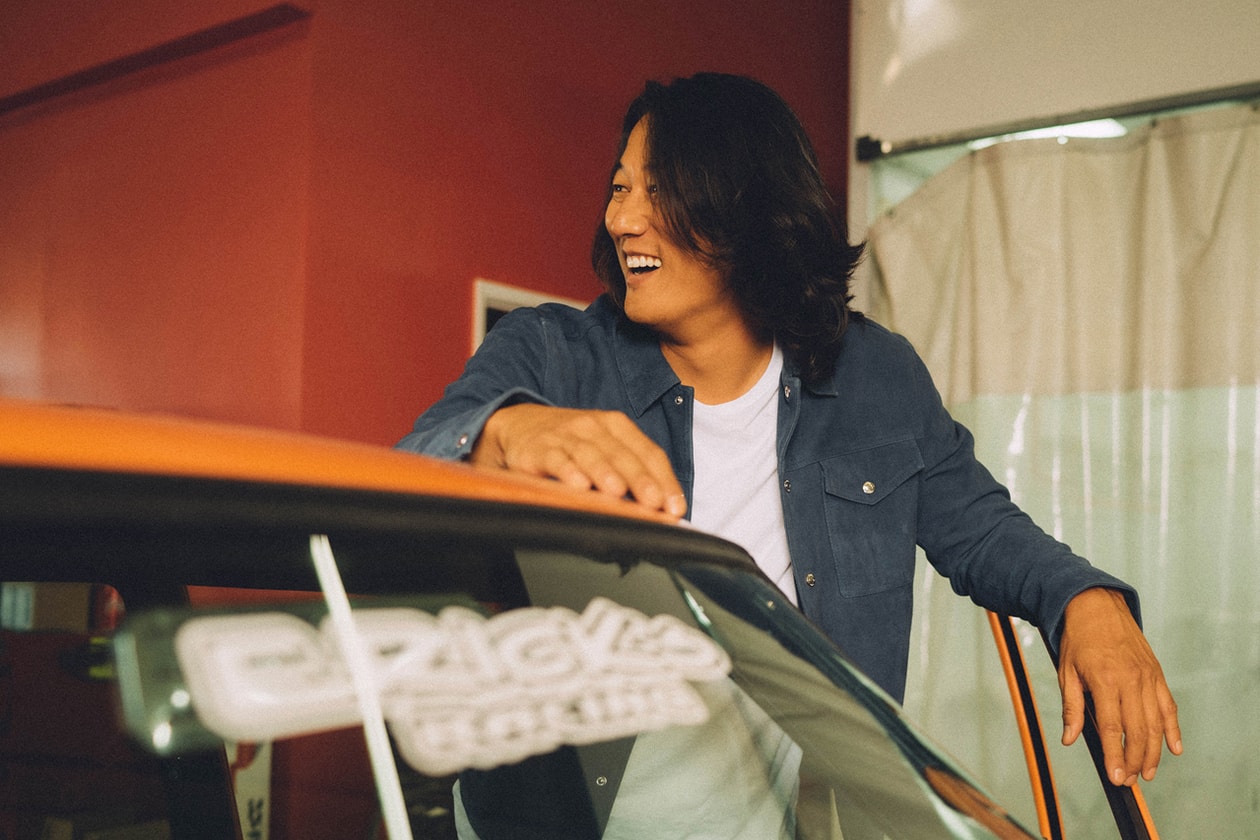
Aaron Miller/Hypebeast
2 of 4
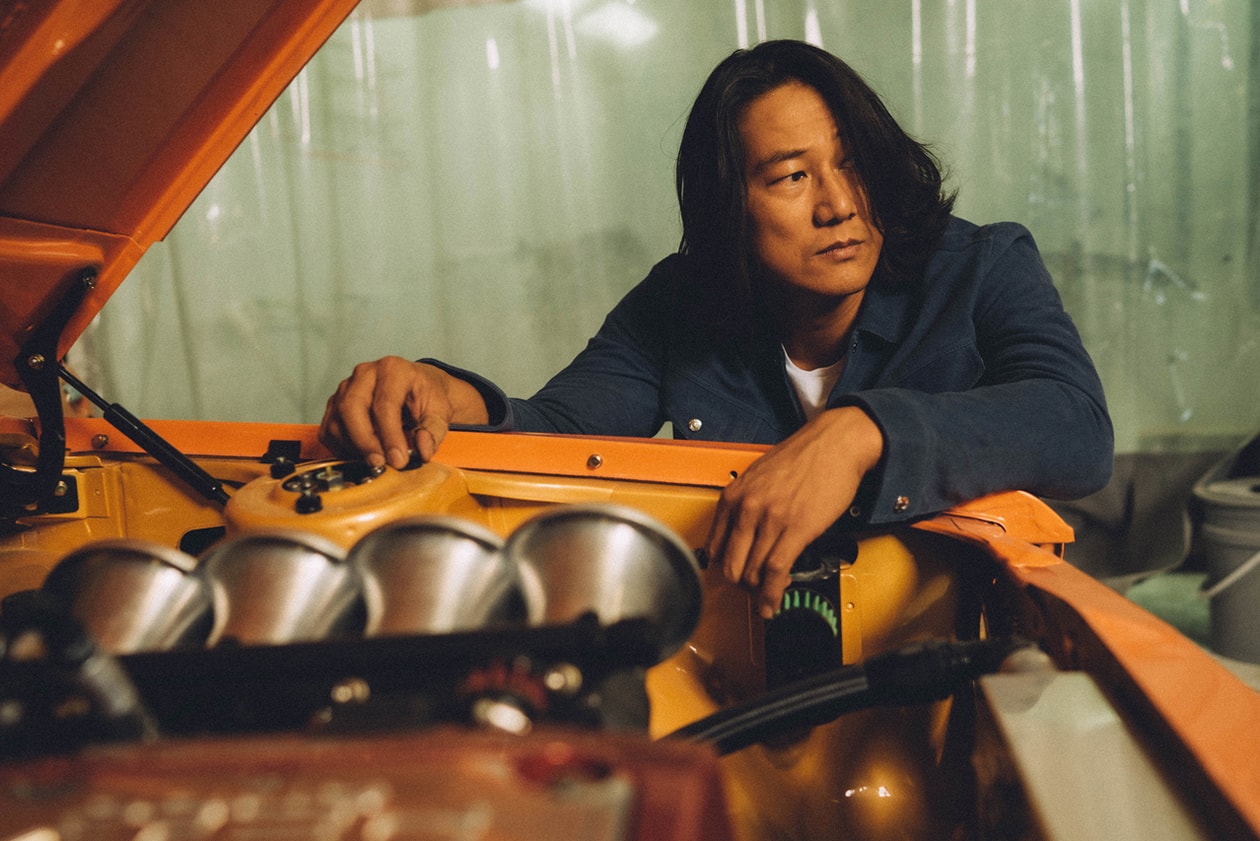
Aaron Miller/Hypebeast
3 of 4
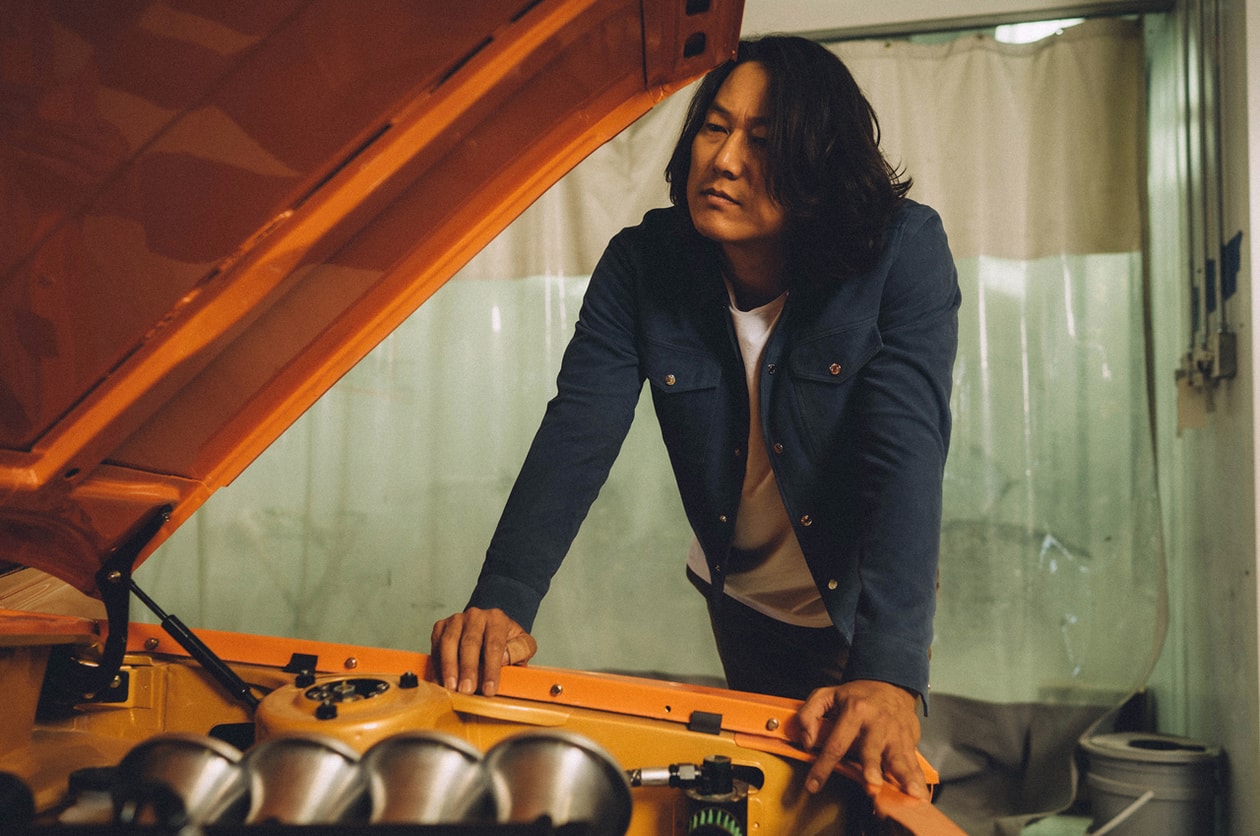
Aaron Miller/Hypebeast
4 of 4
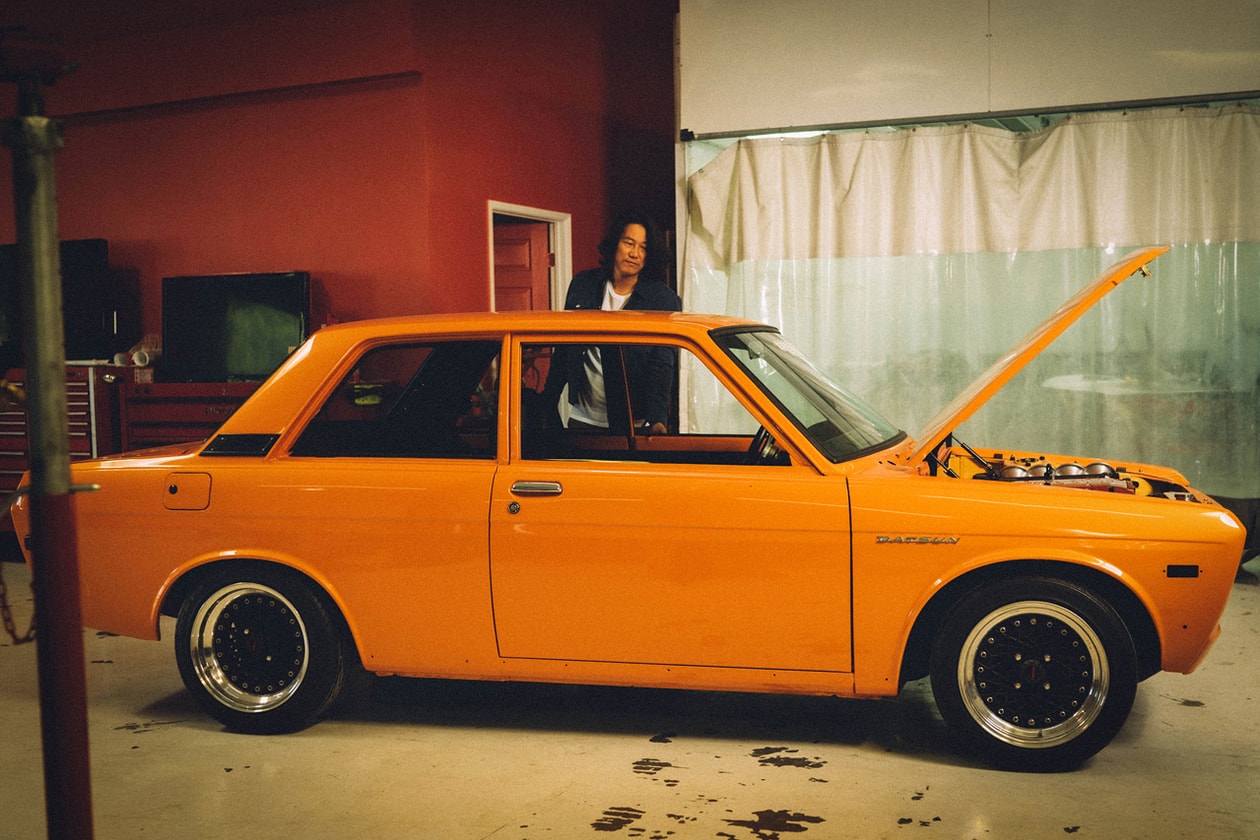
Aaron Miller/Hypebeast
If you’re fortunate where your parents or someone in your family can help you out and get you one, or you’re able to work and afford and have the time to wrench and build your own car… those opportunities I didn’t have so much. We had a family Dodge Monaco, but it was sold instantaneously because I didn’t have insurance. It’s the hard-knock of car ownership, you realize that it’s not free, we didn’t have the funds to have insurance paid for me.
I really learned how to appreciate ownership when my friend came over with their car, I’d be envious. So when I had the chance to get my first car it was very precious — and even now, every car I have I know how lucky I am to be able to be an owner and caretaker. Especially for a car of choice, I hand-picked it.
You see special cars in these films and it’s aspirational for most, maybe some can say “I know someone’s dad with that car.” Do you think this ideal is what excites us?
There’s having a car to show how much money you have, posterizing and boisterous, then there are people who I’m attracted to who are more like mentors, they’re caretakers of information and this car, this era. They have this immense enthusiasm and they’re able to be a part of a tribe, a community — that’s a quintessential human need for us to belong to something, to be accepted.
“I’m the cool older brother, I’m like the real-life Han!”
You have a regular job, you’re just a Joe, but you got the sweet ‘65 Mustang in the State. You’re somebody. Every weekend you get to go to Cars and Coffee, chill with the Concours winner. It depends on who you are, but there’s no judgment because sometimes we, as young folks, are looking for identity, place, purpose. And sometimes you learn when you’re young that you buy a car to impress other people, eventually that circle of friends are… a certain type of people. I don’t call them “good mood dudes.” If someone’s gonna drive six hours to go to a Cars and Coffee and sit in an armchair all day and talk about their car and share whatever information they have to other owners and younger folks, that’s “good mood dude” people. That’s the kind of people I want to be a part of — and it’s free for the most part, you don’t even need to have a car. If you find the right tribe, people will accept you for whoever you are, there is no divisiveness.
It quenches certain human needs on a surface level if you’re in a one-dimensional place where you need validation about how “sweet your ride is.” It’s there.
On the topic of passing things down, you’re now teaching kids your passion, right?
I don’t know much. I just realized there was a point I was becoming more renascent about participating in the car community because I’m not a wrencher, I’m an enthusiast. I’d get blasted for not knowing things, I’d be like “Oh man, feeling a little insecure.” I don’t want to misrepresent, so I always try in any conversion I have to give credit where credit is due, I didn’t build these cars I was just a part of it.
I know my place, my lane, where I can contribute to the young folks. I can introduce and give access to people and places they normally wouldn’t have, especially if they’re passionate about something. That’s where I am currently in my state of mind — how do I contribute? What is my asset? I want to always share the access that I have.
Because I’m in the Fast movies, the cars have more attention overall. We get to go to cool places and meet cool people, if you’re a kid in high school and you’re into cars, and normally you wouldn’t get to go to SEMA or whatnot, or meet Jay Leno, do all that, I’m the cool older brother, I’m like the real-life Han!
You’re a huge advocate for communities. Why is the car community particularly special to you?
For the most part, it’s always been welcoming to me. A person, an actor, who starts off insecure (and that’s why we are actors, right?), looking for legitimacy, identity, and place. After the Fast movies, the car community somehow made me this spokesperson for a certain part of the culture. I was like, do I merit that? I’m not the master-builder, I don’t have a collection of cars, what is it?
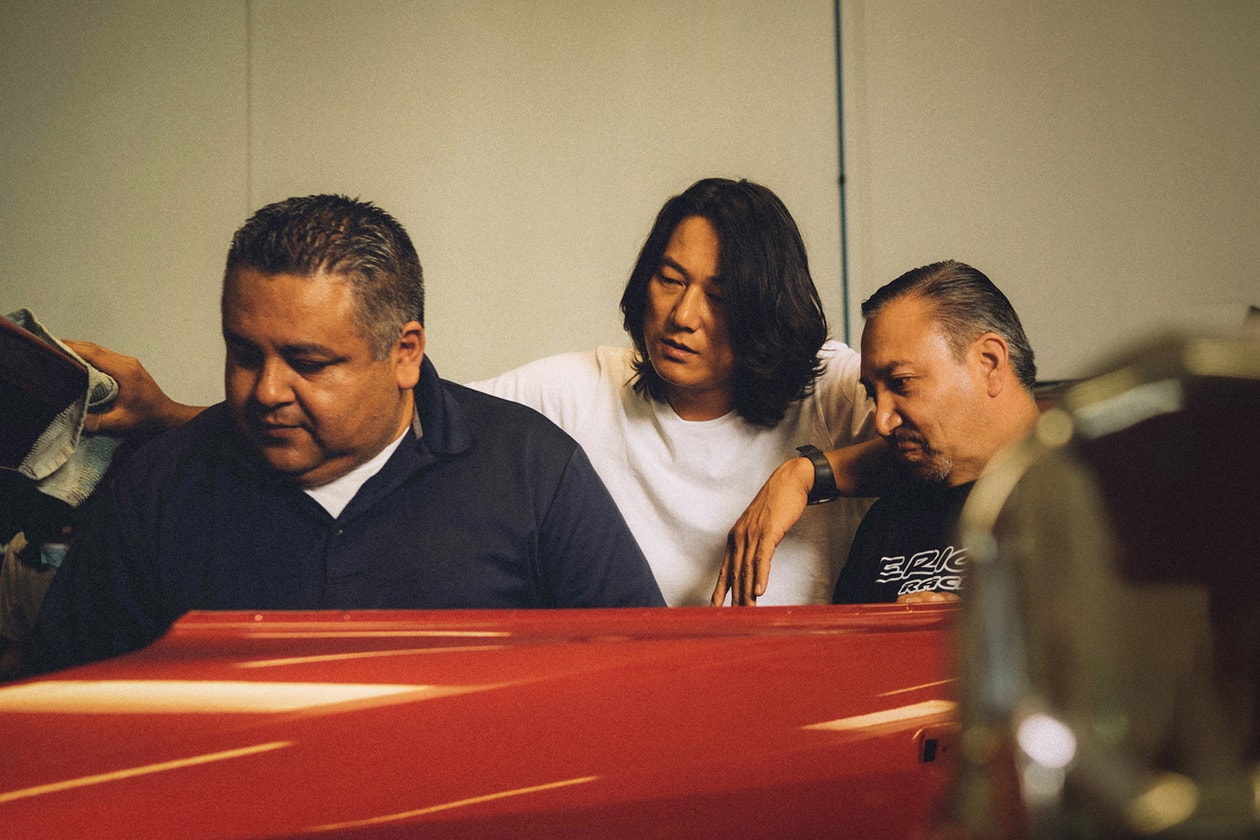
Aaron Miller/Hypebeast
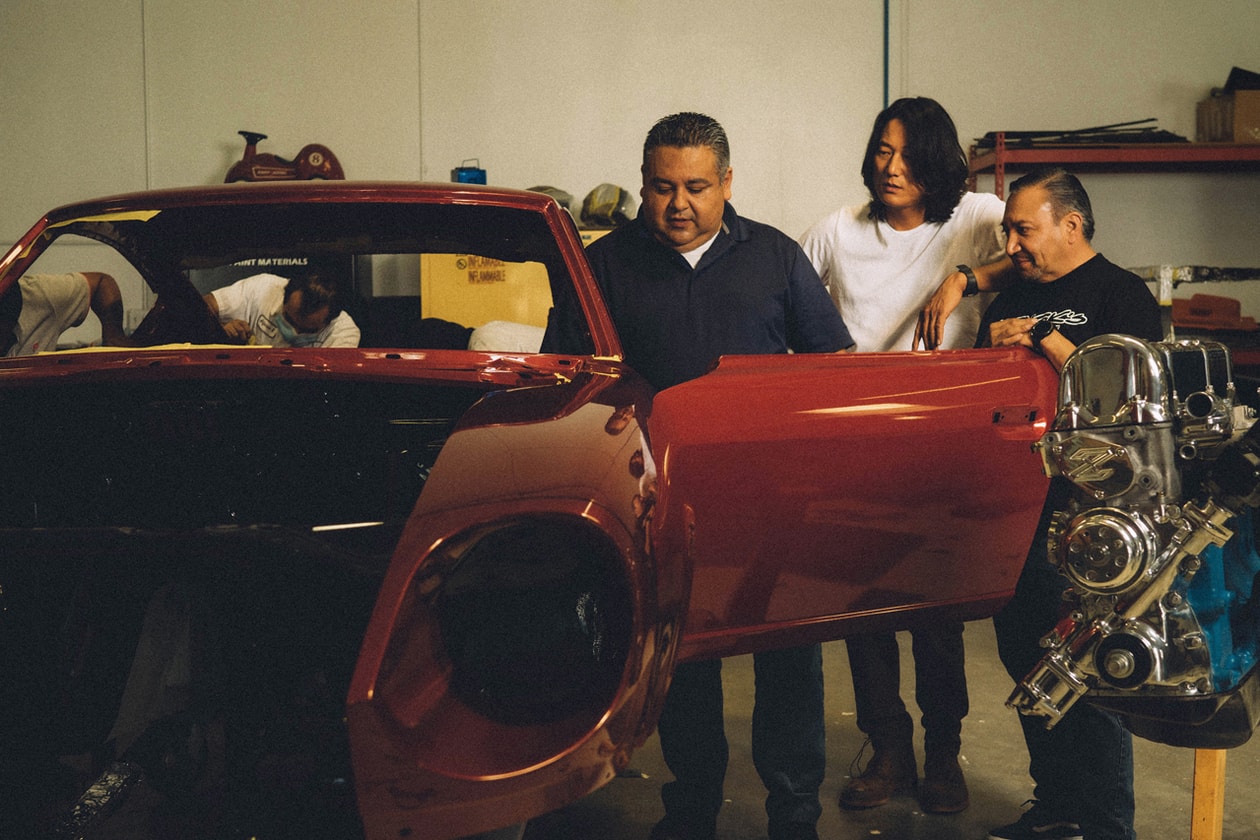
Aaron Miller/Hypebeast
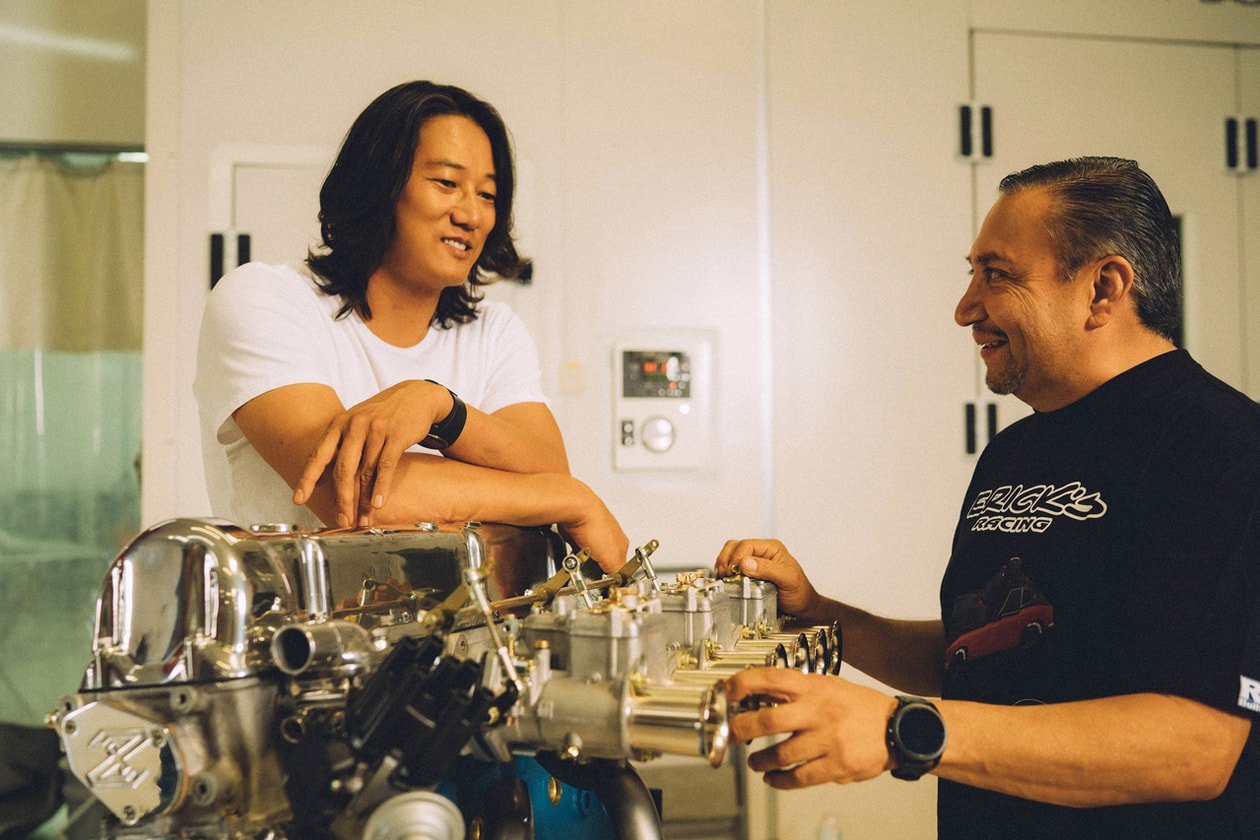
Aaron Miller/Hypebeast
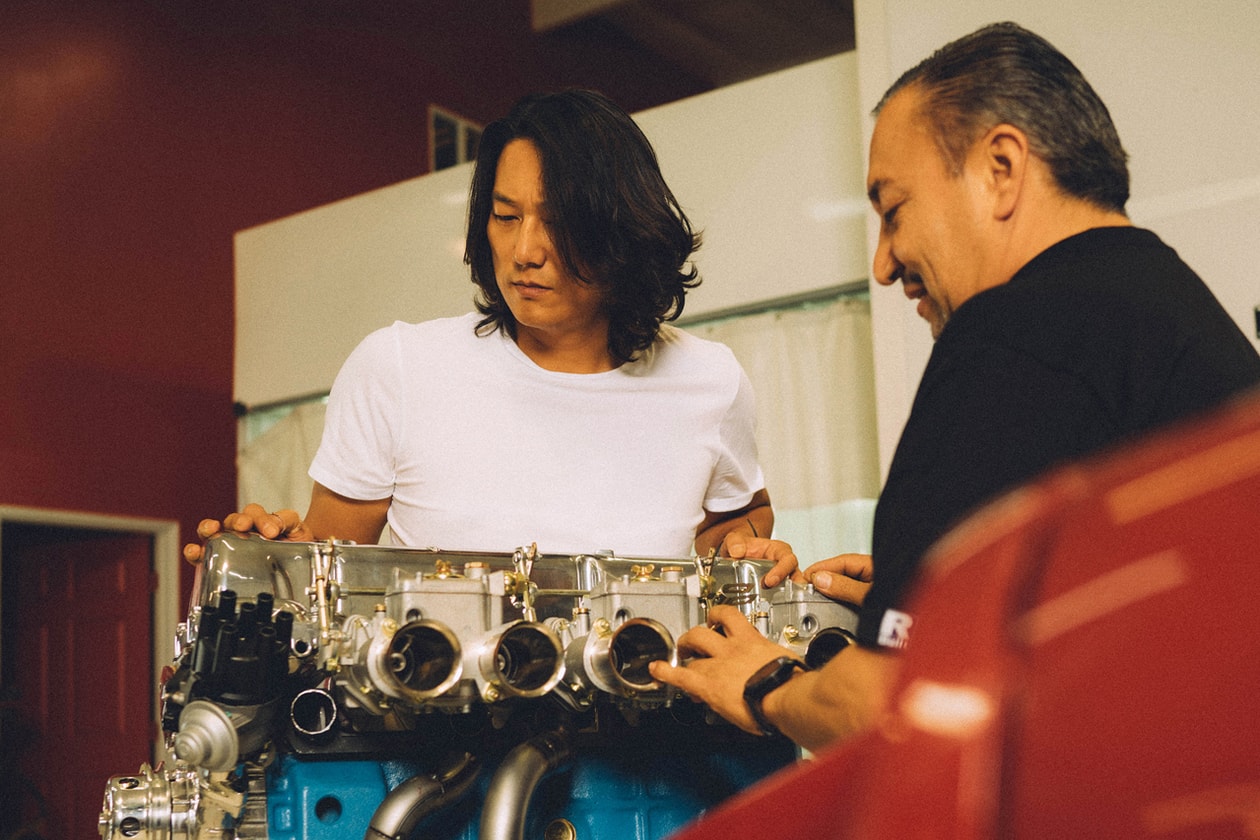
Aaron Miller/Hypebeast
They needed a spokesperson that could connect with people — not specifically Asian or JDM-specific — but could also connect with something other than the car. My narrative and ethos is to build cars so you can hang out with your friends, even if you don’t know what you’re doing go watch YouTube man! Claim and admit what you don’t know and go find the answer, and that’s the cool part that not everyone’s going to help you, but the ones that do, I guarantee you you’ll be friends with them after the car’s done.
Through the course of cars, when you spend a year with people the relationships are like this [crosses fingers]. When you look at the car and it represents something positive, it was worth it! But at the end, if it’s a symbol of “F*ck that guy, you wasted my time,” it’s a horrible symbol. Each car has been a symbol of a great memory, a great time, and then I don’t even care about the car — it’s over, I’m looking for the next thing, the next purpose to get together.
Does being Korean-American also come into your understanding and appreciation of community?
You’re aware just because of demographics at a car meet. It’s segregated to a degree: American Iron guys are here, JDM guys are here, Mustang guys over there. You hear stories.
“When you see all the stuff that’s going on in this world about Asian hate and all this stuff, you wake up to it and you go, ‘Where do I belong? Where do I go to chill? Where do I go to feel like I don’t need to look over my shoulder?’”
The thing about my journey, when you see all the stuff that’s going on in this world about Asian hate and all this stuff, you wake up to it and you go, “Where do I belong? Where do I go to chill? Where do I go to feel like I don’t need to look over my shoulder?” and where we are today, at least in California, it’s very, very progressive and open.
The ambassadors of the car meets, at least the ones I choose to participate in, are inclusive. It doesn’t matter what you drive, come with an attitude of inclusiveness. It makes me go, “Oh, within a simple car meet, because of social media, we cannot be in a soapbox, we can show we come together because of the commonality of cars. Not because of politics or ideology, we’re here and we’re having a great time.” We’re collaborating on cool cars together. It’s baby steps — I’m aware, but today in California and the people I consider ambassadors in the car community, they’re welcoming to everyone. They’re older bros, real Hans in life. They have the answers. I’m very optimistic.
You bring these kids together through your garage. Is it reassuring that you have these communities, and are a part of these communities?
Yeah, it’s also reassuring because the younger generation is the future. I can only do so much — you can take a horse to water but they have to have tenacity, ask questions, I tell them to get emails and stay and be persistent. The future is within the young folks, so for me, innovation comes from them. There’s only so much I know. You get a young dude who comes out of college and they know 3D scanning, they can create parts right away, I keep the young guys close! They’re so innovative, there’s no “No” to them, their imagination is out there.
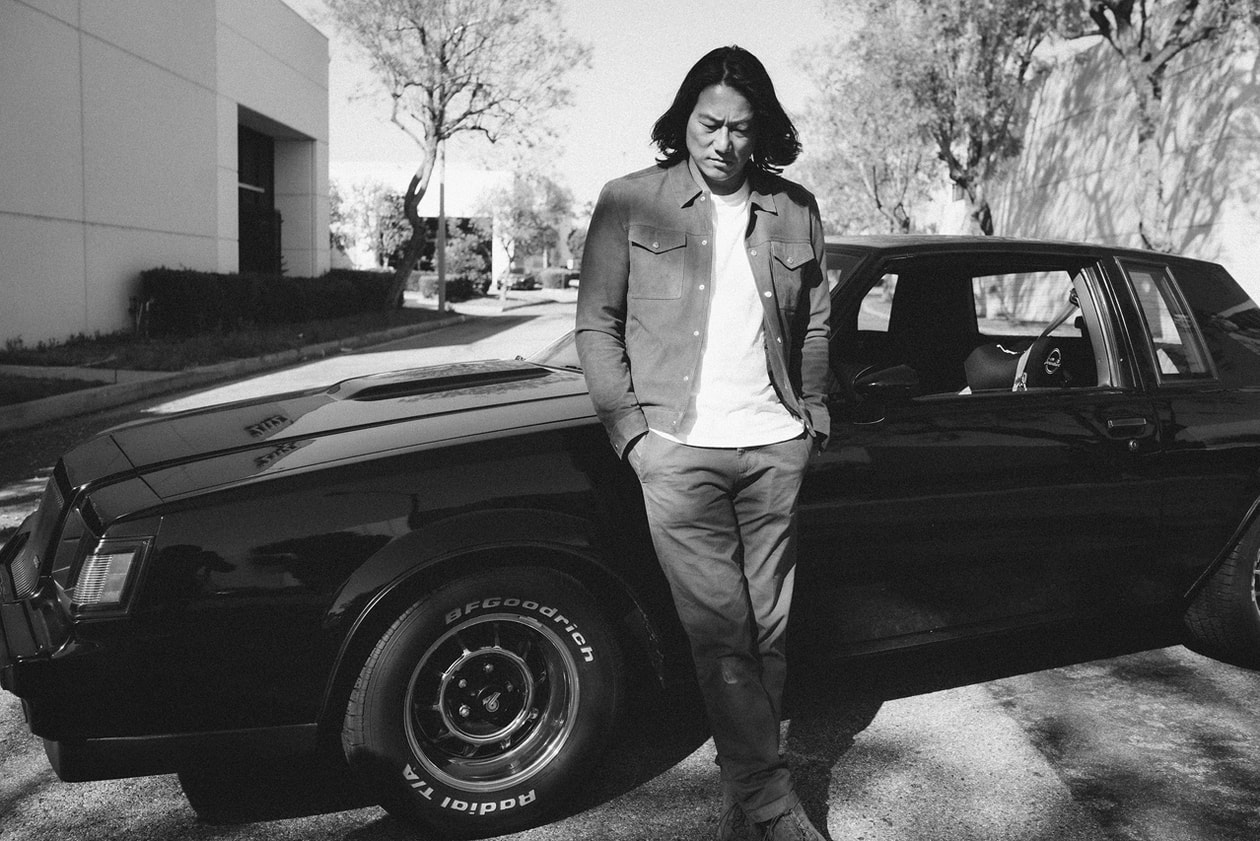
Aaron Miller/Hypebeast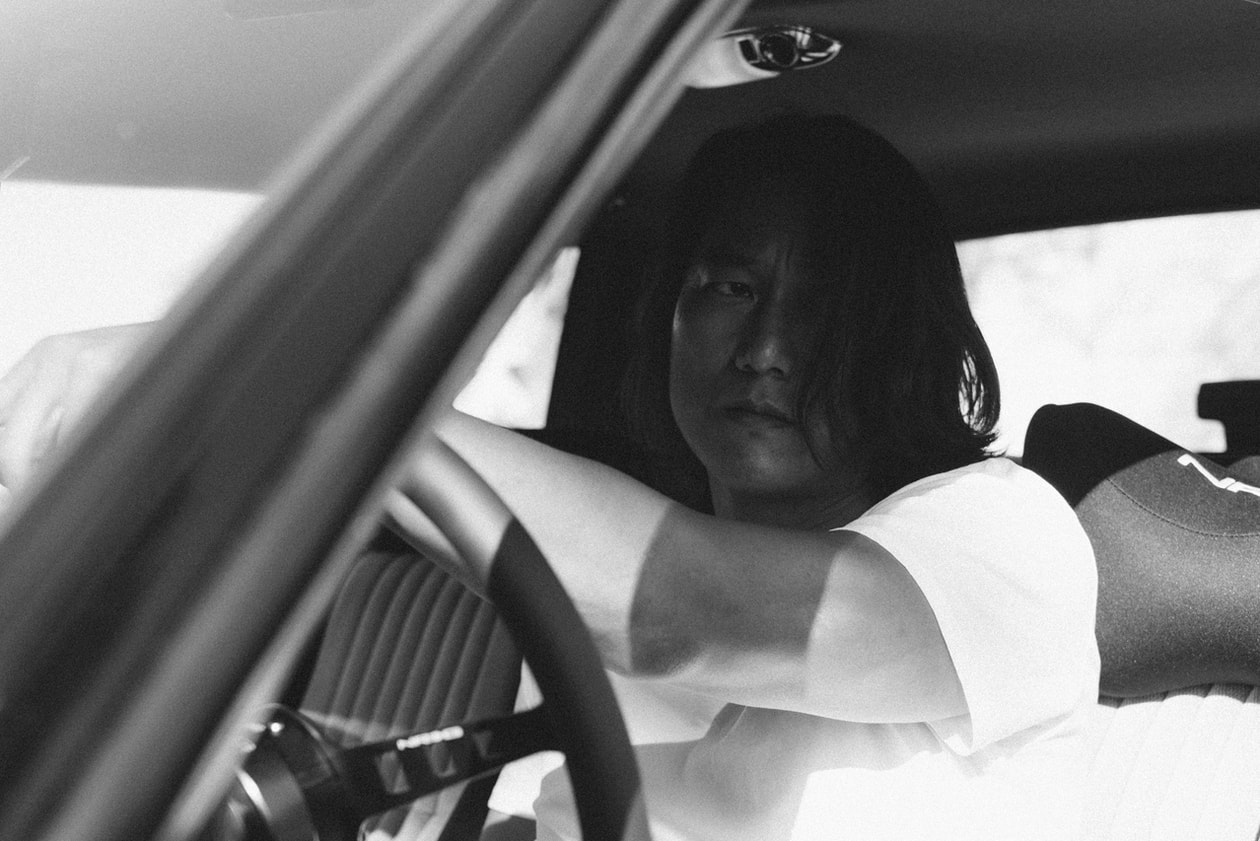
Aaron Miller/Hypebeast
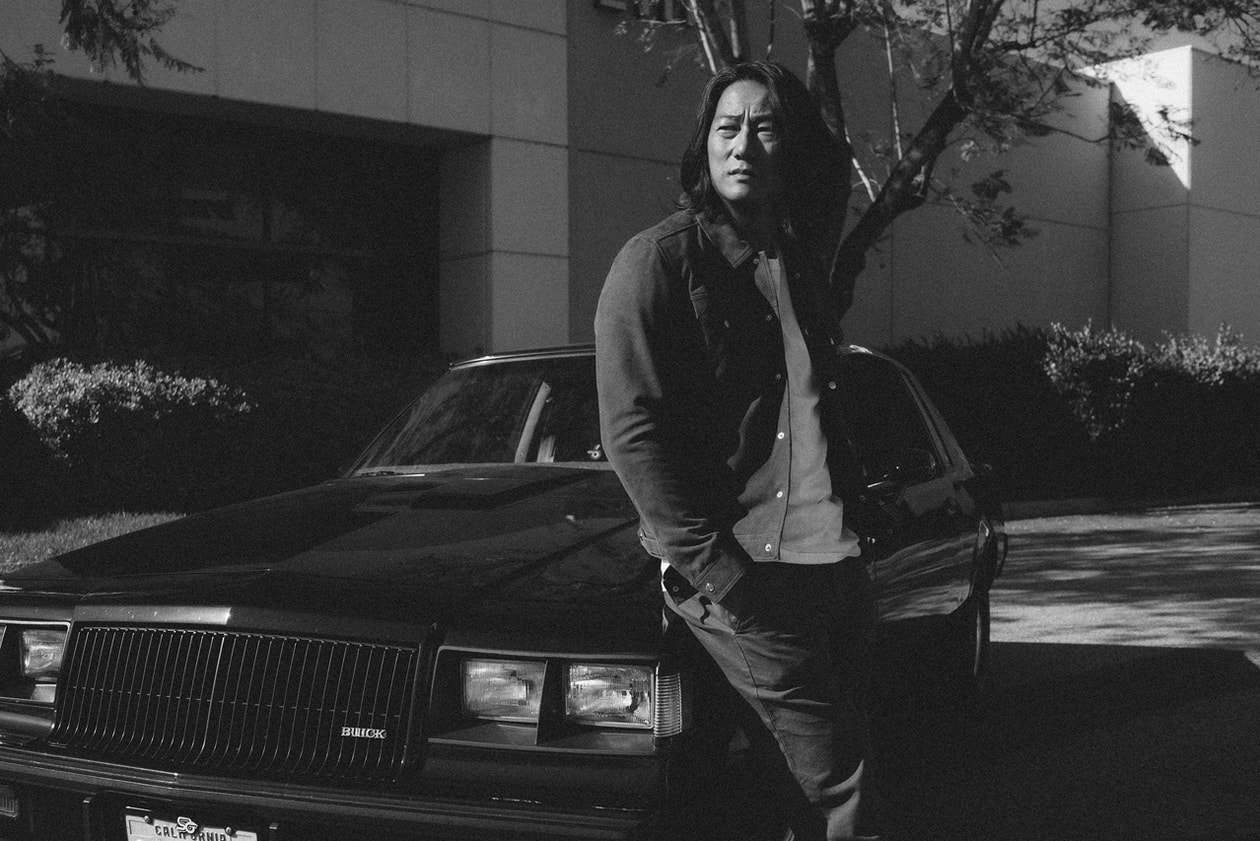
Aaron Miller/Hypebeast
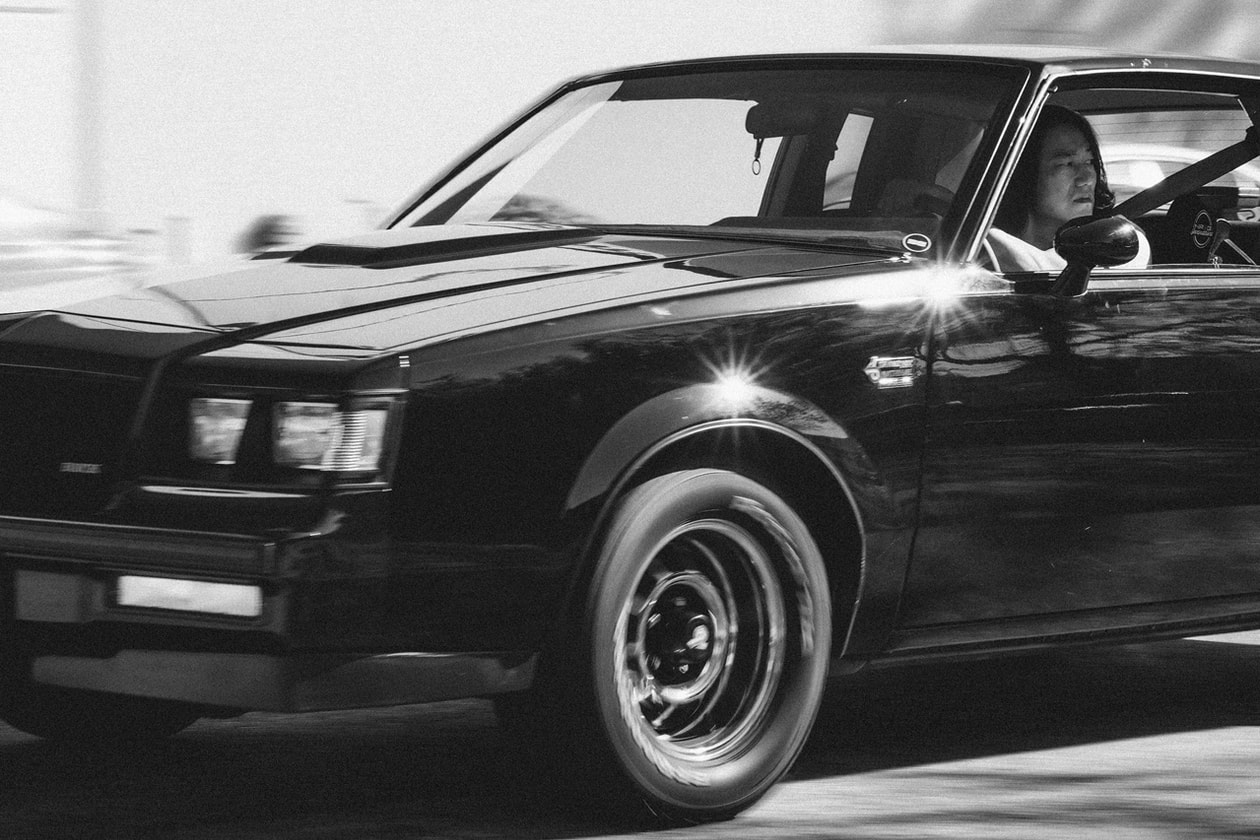
Aaron Miller/Hypebeast
If I can just share and pass off why I love cars, hopefully when I’m gone these guys or someone who was a part of their community can take care of them. I need to keep the younger guys and girls enthusiastic so they can keep these cars on the road when we’re gone. We’re just caretakers, they will outlive us.
It’d be rude not to speak about Fast & Furious 9. When I watched Tokyo Drift, Han was this loveable role model: how do you think that character represents someone or inspires the younger generation?
On a personal, race kind of perspective, I can share a story. When I went back to Georgia, my cousins (who live in Georgia, they stayed there their whole life and I came to L.A. to pursue acting), and I came back to shoot Fast 5 — we shot a lot of the indoor scenes. We went fishing but we had to drive through Alabama, which was a very conservative red state. Four Asain dudes in a truck going through Alabama, and my cousins said “I know you have a mouth, you’re sarcastic and stuff, but at this gas station don’t be talking smack, don’t do it!” I was like yeah, alright, whatever.
I went in to get something and there were two kids at the counter, the guy behind the counter, and he looked up and said, “Oh my God, it’s Han! It’s Han.” He calls his mom, “Momma, Han’s here! From Tokyo Drift. I gotta show him my car.” We spent a good 15 minutes chatting it up, how much he loves Fast, and my cousins are watching. I saw in their eyes this change — anytime they drove through Alabama they feared persecution because of the way they looked, and through their cousin, they see this evolution of how a person, who would normally see an Asian one-dimensionally, sees them as a friend, a guy he wants to have a beer with, share his car story.
“If you find the right tribe, people will accept you for whoever you are, there is no divisiveness.”
I realized how important the Fast & Furious movies could be within culture and change and give different dimensions to what an Asian male is. Then, the responsibility: I could have been at the gas station and he wanted a picture, I say, “Nah, I’m outta here!” And he would have had a perception of what an Asian male is, an actor is: arrogant and standoffish. I realized that now it’s on me, the time has passed, to bookend this on a human level: how do I connect and leave an impression? That’s been a challenge, but also the lens of looking at it now is a blessing, a gift, that I put on a cape of Han and represent. Especially today, they meet an actor in their favorite franchise, maybe they never met an Asian person, but they meet Han for the first time and we talk about their car, and where they’re from, and the movies. They leave and they have a picture and a great impression of what Han was, and he happened to be Asian.
How do you want people to feel when they see Han again?
There was something incomplete and uncomfortable, and I hope after they see the movie they welcome Han back and also have peace. Han’s back, here for you guys, your buddy is back. Justice has been served, it’s as simple as that.
The rest is two-and-a-half hours of a rollercoaster ride. As we start to attack this pandemic, people can go to the theatre and forget. Just enjoy. Don’t get too deep and come out with tears and tissues, this is a combination pizza for Fast fans, this is everything!